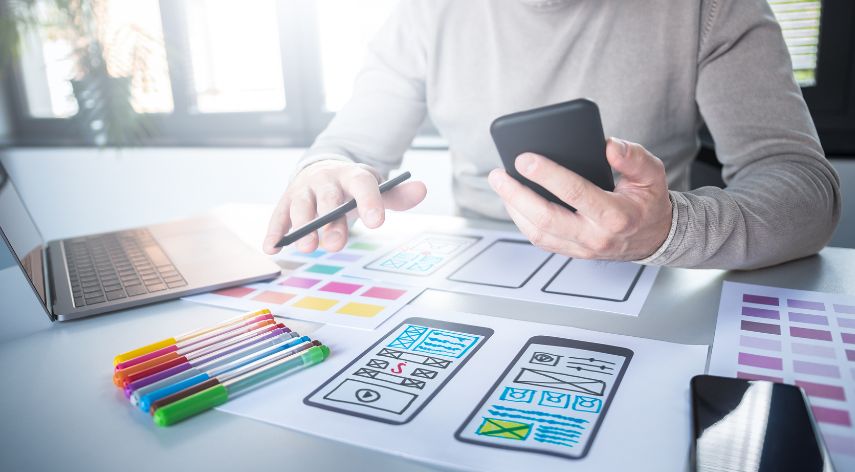5 reasons why Android has the upper hand on iPhones
For the past few years, Apple has been focused on investing a lot in its R&D, leading to a product launch every now and then, which has only benefitted the people even more. For who doesn’t wait for the prices of older products to drop down. If only Apple didn’t set the bar high with its classy new features and ridiculous pricing, Google would never have gotten the chance to beat them at their own game.
Let’s have a look at a few of the aspects of why Android gets the better of iOS:
Table of Contents
ToggleSky-high Prices
To any avid fan of technology, it’s pretty common knowledge that when Apple provides exquisite features in its iPhones, it also charges you for them as per their whim. Sure, the features offered are unmatchable, and if you’re a sucker for brand names, you’ll run after it. However, you should pause for a moment and ask yourself if it’s really worth it?
For instance, iPhone X’s starting price is $999, whereas the next best phone, which can be the Samsung S21, is priced at $899. Moreover, it possesses an Octa-core processor with a 4000 mAh battery compared to the latter’s Hexa-core process with 2716 mAh. Not only that, Samsung S21 has a triple camera consisting of 12, 64, and 10 MP definitely gives it an edge over the iPhone X’s dual camera of 12 and 7 MP. Sure, iPhone has a 3D face unlock, but surely you’d be better off saving that $100, no?
Let’s say you’re into it because of the specs, so you can even get the OnePlus 9 Pro around a similar price as that of an iPhone X. It’s all a matter of perspective, truly. But, of course, the fact that Apple manages to throw a bunch of money for its product launch doesn’t get lost on hard-core Apple fanatics.
Long-lasting battery
All the aforementioned phones are in possession of a battery mAh that is much bigger and better than most iPhones. However, the lack of prolonged battery life is one of the major downfalls for Apple. Despite trying their best to come up with a solution for this, they’ve only gotten as far as adding more features and even blowing up phones.
No kidding, many people have reported their iPhone batteries going bust to the point of suffering second-degree burns. What’s the point of going broke if you’re going to get hurt and won’t even have the money to get yourself treated?
Furthermore, sometimes people have even reported their battery to drain far too quickly after updating their iOS 14.5 to a newer version to the point now they refrain from updating the iOS altogether unless or until they have no other choice.
To charge or to use headphones
One of the biggest challenges iPhone users face is the lightning charging port since the iPhone 7 launch. Sure, it might give you the facility of fast charging; however, if you’d like to use your usual headphones, which consist of a 3.5mm audio connector, you’d require a dongle to connect the pair of headphones to your phone.
That means you would not be able to charge your phone and connect your headphones simultaneously. Of course, the alternative would be to buy the wireless, i.e., Bluetooth headset, much like AirPods, but they also cost no less than $160. You can explore other options, though, which would cost you around $20-$200.
Now, if you have more than one Apple device, you’re recommended to buy Apple’s proprietary Lightning connector, which would at least eliminate the issue of connecting your devices.
Unique User Interface
For a first-time Apple user, the UI might be appealing, sure, but it’ll take you some time to get used to it. Unlike Android’s straightforward one-click, iPhone has several complications associated with it. For example, the navigation is easier in Android due to the Home and Back button; however, iPhones don’t possess a back button at all. Instead, there’s just the Home button for you to come back to the main page.
Another major difference between the two interfaces is that of the FAB – Floating Action Button which is present in all Android phones. It shows you a list of all the recently used apps. The most similar function to this in Apple happens to be a call-to-action button which exists at the upper right corner in iPhones.
The drastic changes between the two interfaces can be owed to the fact that Google prioritizes universal ease of access mode for all its users. On the other hand, Apple assumes that it knows the best for its employees.
Room for customization
Most Android phones allow plenty of room for customization. You want a shortcut to a certain webpage from Chrome? Done. You’d like the Media Volume to be less loud than your Call Volume? Done. You need to make a change to the system settings in a single swipe? Done.
However, iPhones cater to none of these. Instead, you need to make an extra effort, a few more additional swipes, and jump through hoops to get done with what you want. For instance, unlike Android, where you can get rid of unused apps with a single tap, you have to do that one by one in Apple. Now, sure if you’re lucky, your iPhone might let you get rid of it in a single go. But at which point the algorithm allows you to do that is a mystery to most.
Pretty sure, we’ve given you plenty of reasons to oppose Apple if you were ever to write an essay on Android vs. iOS to the point you won’t be needing to make the use of an essay writing service UK or something.
In fact, with the material we’ve provided to you, you’d probably do a better job than that of an essays tigers website or such. Well then, what are you waiting for? Go out and inform your Apple fanatic friends that they ought to avoid getting exploited.
Jeff Bailey is a tech enthusiast and gadget guru with a profound understanding of the ever-evolving world of technology. With a keen eye for innovation and a passion for staying ahead of the curve, Jeff brings insightful perspectives on the latest gadgets and tech trends.
Recommended For You
Spread the loveInstagram is a visually driven platform, and understanding how aspect ratios work can significantly impact the success of
Spread the loveHave you ever received a call from an unknown number, and upon searching online, found nothing but dead
Spread the loveOverview of U231748506 Welcome to U231748506, your comprehensive guide to the predictions and trends shaping 2024. As we





